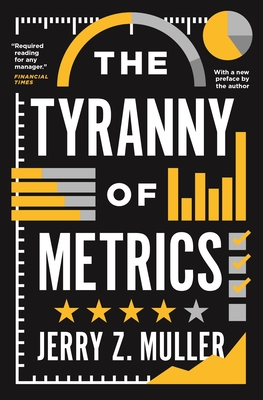

 Princeton University Press
Princeton University Press
The Tyranny of Metrics


Key Metrics
- Jerry Z Muller
- Princeton University Press
- Paperback
- 9780691191911
- 8 X 5.2 X 0.9 inches
- 0.45 pounds
- Business & Economics > Operations Research
- English
 Secure Transaction
Secure TransactionBook Description
How the obsession with quantifying human performance threatens business, medicine, education, government--and the quality of our lives
Today, organizations of all kinds are ruled by the belief that the path to success is quantifying human performance, publicizing the results, and dividing up the rewards based on the numbers. But in our zeal to instill the evaluation process with scientific rigor, we've gone from measuring performance to fixating on measuring itself--and this tyranny of metrics now threatens the quality of our organizations and lives. In this brief, accessible, and powerful book, Jerry Muller uncovers the damage metrics are causing and shows how we can begin to fix the problem. Filled with examples from business, medicine, education, government, and other fields, the book explains why paying for measured performance doesn't work, why surgical scorecards may increase deaths, and much more. But Muller also shows that, when used as a complement to judgment based on personal experience, metrics can be beneficial, and he includes an invaluable checklist of when and how to use them. The result is an essential corrective to a harmful trend that increasingly affects us all.
Author Bio
Jerry Z. Muller is professor emeritus of history at the Catholic University of America and the author of several books, including The Mind and the Market and Capitalism and the Jews (Princeton).
His work has appeared in Foreign Affairs, the New York Times, the Wall Street Journal, and other leading publications. He lives in Silver Spring, Maryland.
Research Interests
Jerry Muller’s books, articles, and current research are on the border between history, social science, philosophy, and public policy. He writes and teaches about a variety of historical and contemporary subjects, including capitalism; nationalism; conservatism; the history of social, political, economic, and religious thought; and modern German and Jewish history.
Source: Princeton University Press and The Catholic University of America
Community reviews
Write a ReviewNo Community reviews



